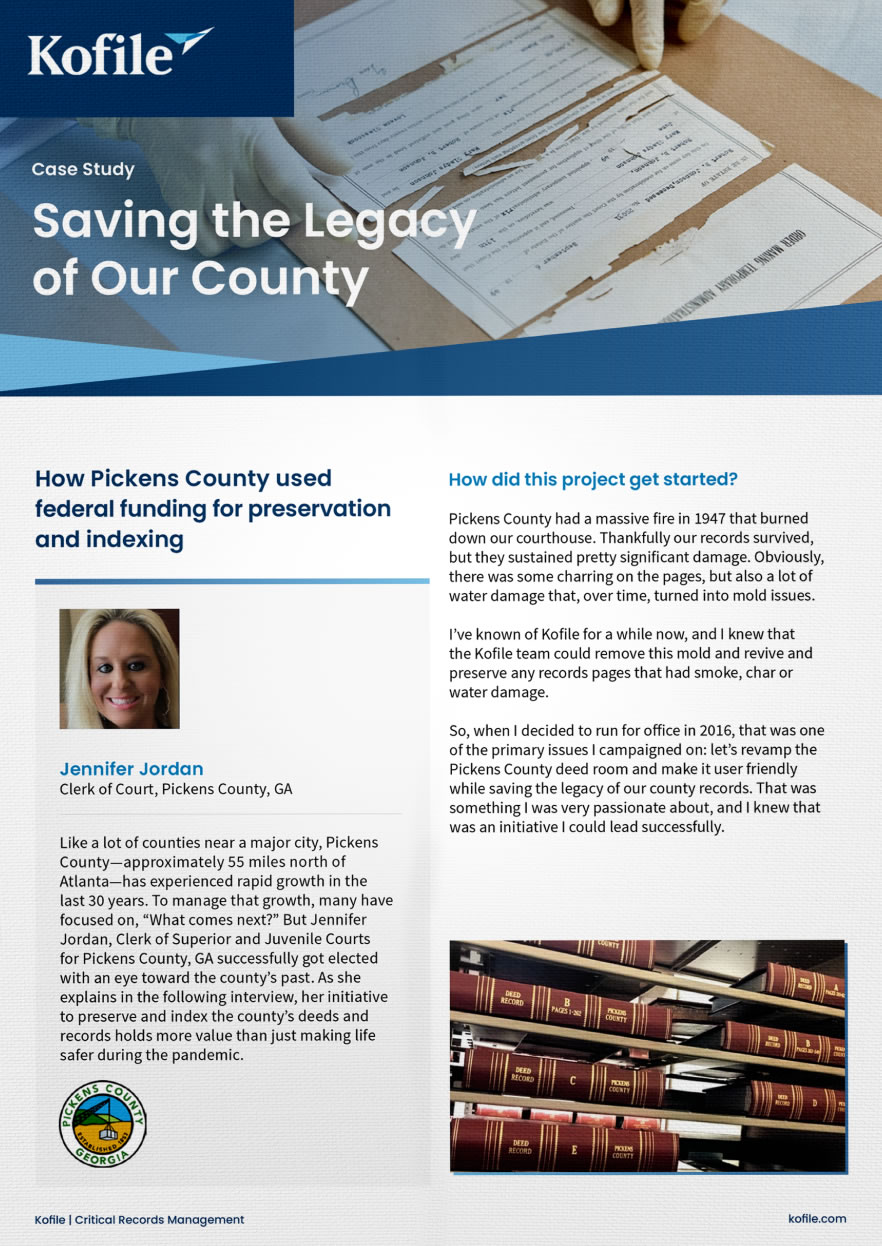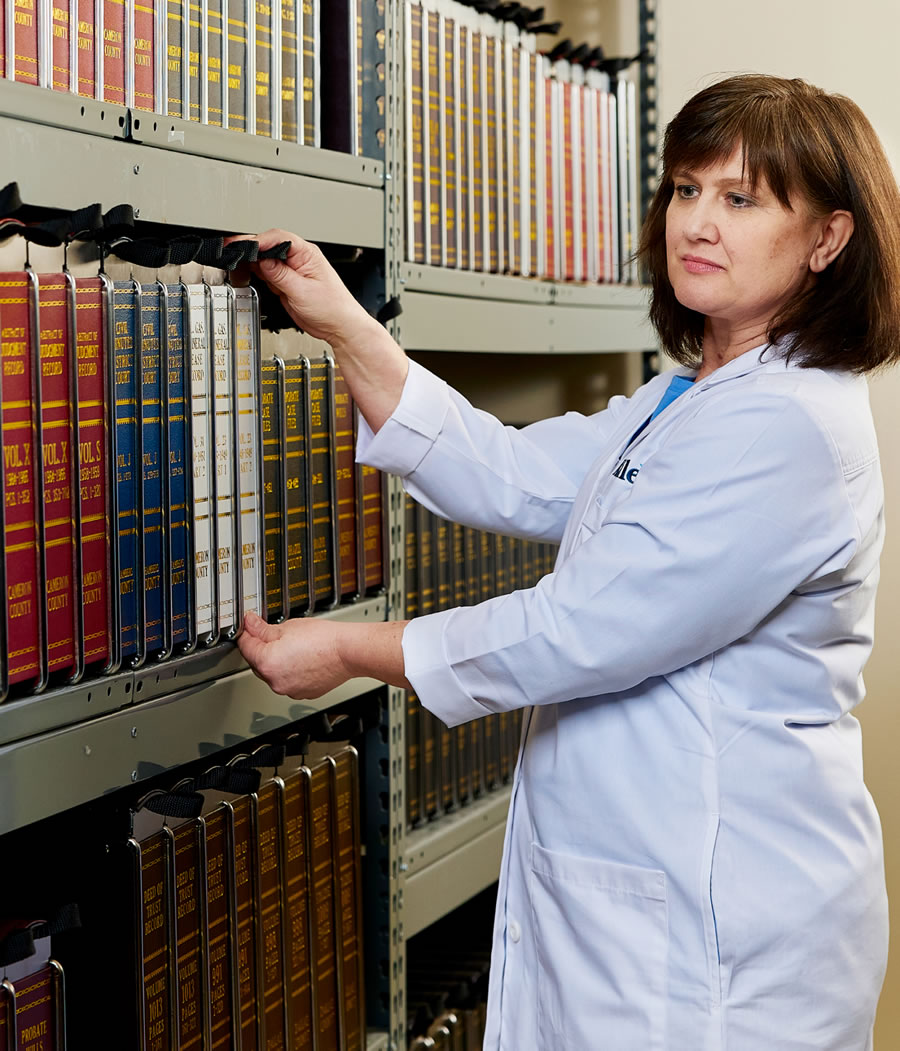Pickens County, GA Case Study
When a fire in the courthouse significantly damaged the Pickens County deeds, clerk Jennifer Jordan knew she wanted to focus her campaign on saving her county’s legacy. After winning her election, Jordan’s journey of restoring, preserving, and protecting documents started with historic plat books and maps to present-day records. Read how she championed this massive project and partnered with Kofile to ensure the physical and digital availability of her county’s history for future generations.

Get the Case Study
